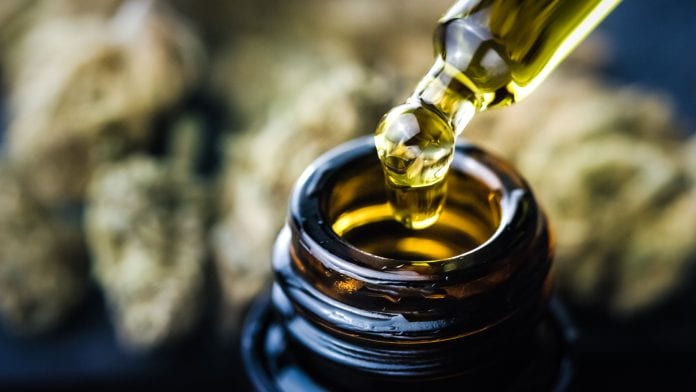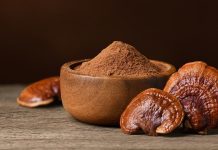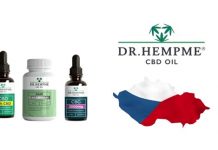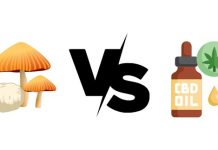
Cannalean’s unique CBD formulation could help to treat dyslipidaemia, without the side effects of statins.
My 52-year-old husband is usually very healthy. He exercises daily, eats only natural foods, and his BMI is fantastic; so several years ago when his doctor told him that his cholesterol levels were high and he needed to start treatment with statins, he opted for something else: a low-fat diet. His numbers, however, did not improve. He refuses to start statin treatment due to its possible side effects and insists on looking for more natural options.
Studies show statins are effective in reducing the risk of heart attack, stroke, and even death from heart disease by 25% to 35% in some people. However, they can cause serious side effects such as headaches, difficulty sleeping, flushing of the skin, muscle aches, tenderness, weakness (myalgia), drowsiness, dizziness, nausea or vomiting, abdominal cramping or pain, bloating or gas, diarrhoea, constipation, rashes; and occasionally even more serious damage such as memory loss, mental confusion, neuropathy, high blood sugar, or Type 2 diabetes.
Many people suffering from dyslipidaemia, a condition affecting about 50% of the population in which one or more of the serum lipid (LDL cholesterol and triglycerides) levels are abnormal, face the same dilemma. Dyslipidaemia is responsible for nearly 20% of cerebrovascular disease and 60% of ischemic heart disease and can lead to increased organ adiposity (fatty tissue around organs) which may trigger systemic immune responses; yet the condition remains largely undiagnosed and less than 30% of the population receives treatment.
What if we could treat dyslipidaemia with food which could help reduce lipids?
CannaLean has developed CLC, a new formulation of cannabidiol (CBD) in a proprietary combination with a chitosan particle, both patent-protected, which has shown promising results in preclinical trials for the treatment of dyslipidaemia.
CBD, a non-psychotropic component of cannabis, is a known immunomodulator shown to improve metabolic functions, which could mitigate metabolic syndrome and consequently, have an effect on serum lipid levels. Chitosan is a biocompatible, non-toxic, non-immunogenic compound which specifically binds to the nonpolar part of the bile acids in the intestine. It clears the bile acids in a safe, tolerable manner, preventing their intestinal absorption and resulting in a favourable decrease of cholesterol blood levels. Chitosan is formulated with lecithin to produce a particle based on hydrophobic compounds out of the combination of two well-known, tolerable substances.
In combination with the chitosan particle, the potential of CBD to significantly reduce blood lipid levels is enhanced: the chitosan acts as a solvent for the CBD, leading to better interaction with the intestinal cell membranes and higher rates of absorption.
Both CBD and our proprietary chitosan particle are individually considered safe for human use in the US and Europe. There was already some anecdotal evidence and several publications describing their ability to reduce lipids when used separately, but we have now demonstrated in several in vivo models that combining them into a new complex formulation allows them to work synergistically. This means that they are significantly more effective in reducing blood cholesterol and triglycerides, as well as reversing weight gain. At time of writing we are preparing to conduct larger efficacy tests in a controlled clinical environment, in order to further study the synergies and effects of these two combined modes of action.
The benefits and hazards of cannabis edibles
Cannabis-based food products are increasingly popular and come in many different forms, from gummy candy to brownies. These edibles typically contain either one or both of the cannabis plant’s key active ingredients: CBD and delta-9-tetrahydrocannabinol (THC).
CBD-only edibles have been found to help treat ailments such as anxiety and chronic pain; and their popularity has increased as legislation governing cannabis use has become more lenient in a number of countries around the world. Unlike smoking cannabis, edibles do not pose any risks to the respiratory and cardiovascular systems. The overall experience with edibles is different: their effect may take hours to fully take hold, but can feel more intense and last much longer than smoking or vaping cannabis.
Consumers using cannabis edibles, however, often do not pay enough attention to the dosages indicated in the package; and even worse, some users may take additional amounts while waiting impatiently for the full effect to kick in. This sometimes results in harmful side effects – and in extreme cases, a visit to the ER.
Producing, testing and selling responsibly
As of 2020, the value of the cannabis edibles market in the US was estimated to be around $863.1m. China, the world’s second largest economy, is forecast to reach a projected market size of $2.1bn by 2027, trailing a compound annual growth rate (CAGR) of 21.8% over the analysis period of 2020 to 2027. Among the other noteworthy geographic markets are Japan and Canada, each of which is forecast to grow at 19.9% and 19% respectively over the 2020-2027 period. Within Europe, Germany is projected to grow at a CAGR of approximately 15.6%.
Safe, therapeutic – and tasty
We are in the process of developing appetising variants of our unique formulation combined with different foods, with the knowledge that its components are safe and suitable for home consumption. At the same time, we hope to have clinical evidence to back up the benefits of this particular product in the near future, to ensure people get only the benefits without any negative effects.
So far we have seen very good results in the form of dark chocolate and some positive indications with white chocolate. We are working on CLC-infused ice cream (frozen), jelly (chilled), and even Grandma’s cheesecake recipe (to be stored frozen). In our various culinary attempts, we have seen very good incorporation; and we are confident that specialised food scientists should be able to create appealing products, using flavours like mint and ginger, among others.
More importantly, all samples contain the exact desired dose, which – when sold and used as indicated – will ensure consumer safety and potentially help millions of people combat dyslipidaemia and obesity without the side effects of prolonged use of statins. Bon appétit!
This article is from issue 17 of Health Europa. Click here to get your free subscription today.



















